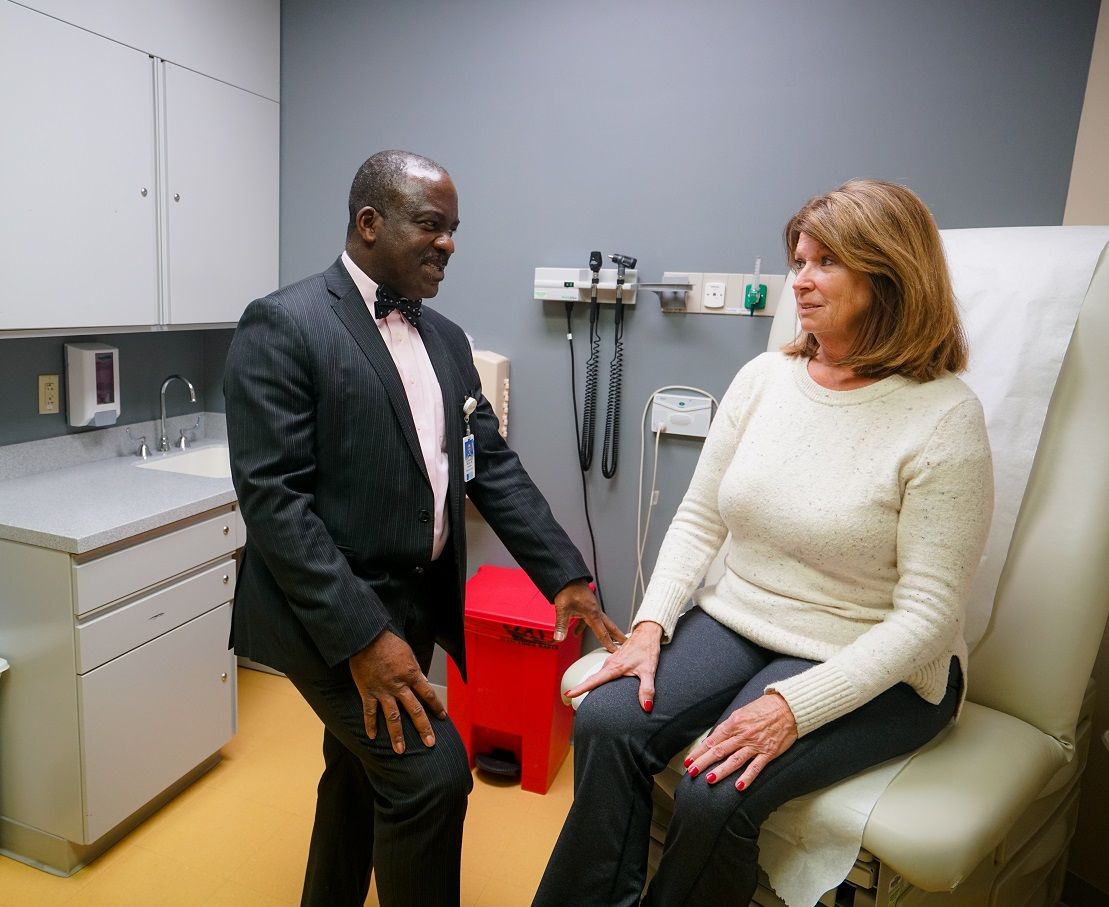How is lung cancer staged?
An important factor in planning your treatment is determining the size or magnitude of your cancer and the extent of your disease or where the cancer has spread. To determine the stage of your lung cancer, your oncologists will take the information from your:
- Physical exams
- Imaging such as X-rays, CT and MRI scans
- Laboratory tests on samples of your blood, urine or other fluids and tissues
- Pathology analysis of the cancer cell type and grade
- Surgical assessment of size and appearance of the tumor, and whether it has spread to lymph nodes or other organs
Physicians most commonly use the TNM Staging System developed by the American Joint Committee on Cancer (AJCC), which assesses features of the cancer, including:
- Tumor (T) size of the original primary tumor and whether it has grown into nearby structures.
- Whether the cancer has reached nearby nodes (N)?
- Whether the cancer has metastasized (M) or spread to distant sites or organs
Stages for non-small cell lung cancer
Occult Stage. Lung cancer cells are found in sputum or in a sample of water collected during bronchoscopy, but a tumor cannot be seen in the lung.
Stage 0. Cancer cells are found only in the innermost lining of the lung. Also called carcinoma in situ. The tumor is not an invasive cancer.
Stage IA. The lung tumor is an invasive cancer and has grown through the innermost lining of the lung into deeper lung tissue. The tumor is 3 centimeters (cm) across or smaller, surrounded by normal tissue, and does not invade the bronchus. Cancer cells are not found in nearby lymph nodes.
Stage IB. The tumor may be larger or deeper, but cancer cells are not found in nearby lymph nodes. With this lung tumor, at least one of the following is true:
- Between 3 and 4 centimeters (cm) across, without lymph node involvement.
- Invaded the main bronchus.
- Grown through the lung into the pleura.
Stage IIA. The lung tumor is no more than 3 cm across, but cancer cells are found in nearby lymph nodes.
Stage IIB. The tumor is one of the following:
- Cancer cells are not found in nearby lymph nodes, but the tumor has invaded the chest wall, diaphragm, pleura, main bronchus, or tissue that surrounds the heart.
- Cancer cells are found in nearby lymph nodes, and this tumor has one of the following characteristics:
- larger than 3 cm, but less than 7 cm across, without lymph node involvement
- has grown into the main bronchus
- has grown through the lung into the pleura
Stage III – larger than 7 cm without lymph node involvement
Stage IIIA. The tumor may be any size. Cancer cells are found in the lymph nodes near the lungs and bronchi, and in the lymph nodes in the center of the chest, but on the same side of the chest as the lung tumor.
Stage IIIB. The tumor may be any size. Cancer cells are found in lymph nodes in the center of chest but on the opposite side of the chest from the lung tumor or in the neck. The tumor may have invaded nearby organs, such as the heart, esophagus, or trachea. More than one malignant growth may be found within the same lobe of the lung. The doctor may find cancer cells in the pleural fluid.
Stage IV. Malignant growths may be found in more than one lobe which are not on the same side; Or cancer cells may be found in other parts of the body, such as the brain, adrenal gland, liver, or bone. (Most Roswell Park patients who seek medical attention for lung cancer have advanced disease.)
Stages for small cell lung cancer
Small cell lung cancers are staged using a two-tiered system:
- Limited-stage SCLC refers to cancer that is confined to its area of origin in the chest.
- Extensive-stage SCLC means the cancer has spread beyond the chest to other parts of the body.
Lung cancer staging: hope on the horizon
Accurate staging of lung cancer is an important criterion used to determine treatment following surgery. Current staging methods often lack sensitivity and specificity in early-stage lung cancer.
Chukwumere Nwogu, MD, of Roswell Park’s Department of Surgery, has been awarded grants from the National Cancer Institute and Thoracic Surgery Foundation totaling nearly $1.2 million to investigate the effectiveness of an intraoperative gamma probe in the staging of lung cancer.
This method may give surgeons a new tool to identify cancer metastases to lymph nodes with greater accuracy, which would then guide clinical decisions leading to more effective postsurgical treatment options.
